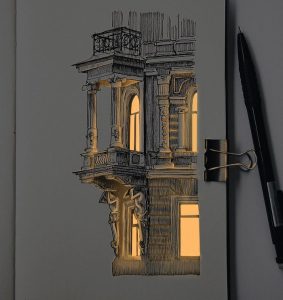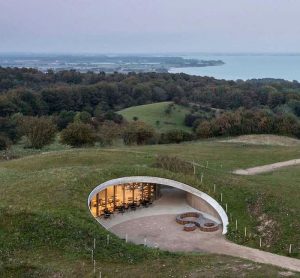C.I.T. Andhra Pradesh (the appellant)
v
M/S Taj Mahal Hotel, Secunderabad
12 August 1971
The respondent, who is the assessee, is a registered company running a hotel in Secunderabad with branches at Sultan Bazar and King Kothi in Hyderabad.
During the previous year ending 30th September 1959, relating to the assessment year 1960-61, the assessee incurred an expenditure of Rs. 57,154/- in installing sanitary fittings and of Rs. 1,370/- for pipe-line fittings.
The assessee claimed a development rebate on these two items at the rate of 25% under S. 10(2)(vi-b) of the Act amounting in the aggregate to Rs. 14,629/-.

The Income Tax Officer disallowed the claim.
On appeal, the Appellate Assistant Commissioner upheld the disallowance.
An appeal was taken to the Appellate Tribunal.
The Tribunal rejected the appeal holding that the definition of “plant” must necessarily be the same, whether it was for claiming depreciation under s. 10(2)(vi) or for development rebate under S. 10(2)(vi-b).
Accordingly, it was held that the sanitary and pipeline fittings did not fall within the meaning of the word “plant”.
High Court
On being moved under s. 66(1) of the Act, the following question was referred for the opinion of the High Court:-
- Whether the sanitary fittings and pipelines installed in the King Kothi branch of the Hotel constituted ‘plant’ within the meaning of sec. 10(5) of the Indian Income Tax Act; and
- Whether the assessee is entitled to a development rebate in respect thereof under sec.10(2) of the Act.”

The High Court answered the question in the affirmative and favoured the assessee.
The only question that was argued before the High Court and which has been debated before us is whether sanitary and pipeline fittings in a building which is run as a hotel would fall within the meaning of the word “plant“ in section 10(2)(vi-b) of the Act.
Section 10(1) of the Act provides that tax shall be payable by an assessee in respect of the profits and gains of any business profession or vocation.
Sub-section (2) gives the allowances which have to be made in the computation of such profits and gains. Clause (vi) of that sub-section relates to the depreciation in respect of “such buildings, machinery, plant or furniture being the property of the assessee”.
Clause (vi-b) of S. 10(2) is as follows:-
"(vi-b) in respect of a new ship acquired or new machinery or plant installed after the 31st day of March 1954, which is wholly used for the purposes of that business carried on by the assessee, a sum by way of development rebate in respect of the year of acquisition of the ship or of the installation of the machinery or plant, equivalent to...........
Section 10(5) provides inter alia that in sub-section (2), ” plant” includes “vehicles, books, scientific apparatus and surgical equipment purchased for the purpose of the business, profession or vocation”.
The main argument of the learned counsel for the Commissioner of Income Tax, who is the appellant, is that the word “plant” should not have been given a wide meaning and should have been interpreted according to the common understanding in commercial circles among persons who deal in plant and machinery.

It is asserted that the development rebate cannot be claimed in respect of the items which have become a part of the building itself.
It has also been pointed out that the assessee, while claiming depreciation allowance, has included the assets in question under the head “furniture and fittings”, the rate claimed to be 9% which was duly allowed by the Income Tax Officer.
This rate of 9% was applicable under Rule 8 only to furniture and fittings used in hotels etc.
If the assets were to be treated as plant, only the general rate of 7% would be applicable.
The definition of “plant” must necessarily, therefore, be the same whether it be for claiming depreciation under s. 10(2)(vi) or for development rebate under s. 10(2)(vi-b).
It has also been suggested that the primary meaning of the word “plant” has a connection with mechanical or industrial business or the manufacture of finished goods from raw goods and that sanitary and pipeline fittings could not possibly satisfy those conditions.
Now it is well settled that where the definition of a word has not been given, it must be construed in its popular sense if it is a word of everyday use. Popular Sense means “that sense which people conversant, with the subject matter with which the statute is dealing, would attribute to it“.
In the present case, s. 10(5) enlarges the definition of the word “plant” by including in it the words which have already been mentioned before.
The fact that even books have been included shows that the meaning intended to be given to “plant” is wide. The word “includes” is often used in interpretation clauses to enlarge the meaning of the words or phrases occurring in the body of the statute.
When it is so used, these words and phrases must be construed as comprehending not only such things as they signify according to their nature and import but also those things which the interpretation clause declares that they shall include.
The word “include” is also susceptible to other constructions which it is unnecessary to go into.

The case, J. Lyons and Company Limited v. Attorney General, relied upon by the learned counsel for the appellant, apart from being distinguishable, hardly supports the appellant’s contention.
In that case, it was I held that electric lamps and fittings in a tea shop were not part of the apparatus used for carrying on the business but were part of the setting in which the business was carried on and, therefore, were not “plant”, within the meaning of certain provisions of the War Damage Act, 1943.
It was observed on page 286, “if these articles are plant, it can only be by reason that they are found on premises exclusively devoted to trade purposes. Trade plant alone need be considered“.
The meaning of “plant” as given in Yarmouth v. France was accepted as correct.
According to that meaning, “plant” includes whatever apparatus or instruments are used by a businessman in carrying on his business.

In our judgment, the more apposite decision is that of the Court of Appeal in Jarrold (Inspector of Taxes) v. John Good & Sons Ltd.
There the nature of the assessee’s business required that its office accommodation should be capable of sub-division into several rooms varying in size etc., according to the requirements from time to time of the agencies which it carried on.
The office accommodation consisted of a large open floor space in which partitions could be erected so as to subdivide the floor space into several rooms of any size.
Certain partitions were made, which were screwed to the floor and ceiling only and could be easily moved if it was desired to alter the size of the number of rooms.
The question was whether these partitions were plant within sections 279 and 280 of the English Income Tax Act 1952 to entitle the company to allowances under those sections.

There the material words in the statute were “where the person carrying on a trade in any year of assessment has incurred expenditure on the provision of machinery or plant for the purposes of the trade.”
It was held that the partitions were “plant” as they were used in the carrying out of the company’s trade or business.
Donovan, L.J. held that the partitions were used to enable the trader to cope with the vicissitudes of (1) [1944] (1) Ch. 28 1. (2) [1887] (19) Q. B. 647. (3) [1963] (1) W.L.R. 214.
The business as it increased and diminished and relied on the finding of the commissioners that the flexibility of accommodation that the partitions provided was a commercial necessity for the company.

Further illustrations were given of assets which would fall within the meaning of “plant”.
“The heating installation of a building may be passive in the sense that it involves no moving machinery, but few would deny it the name of plant“.
The same thing could, no doubt, be said of many air conditioning and water-softening installations.
It cannot be denied that the hotelier business is carried on by adapting a building or premises in a suitable way to be used as a residential hotel where visitors come and stay and where there is an arrangement for meals and other amenities provided for their comfort and convenience.
To have sanitary fittings etc., in a bathroom is one of the essential amenities or conveniences which are normally provided in any good hotel in the present times.
If the partitions in Jarrold’s case (supra) could be treated as having been used for the purpose of the trader’s business, it is incomprehensible how sanitary fittings can be said to have no connection with the business of the hotelier.
He can reasonably expect to get more custom and earn a larger profit by charging higher rates for the use of rooms if the bathrooms have sanitary fittings and similar amenities.

We are unable to see how the sanitary fittings in the bathrooms in a hotel will not be “plant” within s.10(2)(vi-b) read with Section 10(5) when it is quite clear that the Legislature intended to give it a wide meaning and that is why articles like books and surgical instruments were expressly included in the definition of “plant”.
In decided cases, the High Courts have rightly understood the meaning of the term “Plant” in a wide sense. (See Commissioner of Income Tax, U.P. v. Indian Turpentine and Rosin Co. Ltd.).
If the dictionary meaning of the word “plant” were to be taken into consideration on the principle that the literal construction of a statute must be adhered to unless the context renders it plain that such a construction cannot be put on the words in question-this is what is stated in Webster’s Third New International Dictionary:- (1) [1970] (75) I.T.R. 533.
17 4 “Land, buildings, machinery, apparatus and fixtures employed in carrying on trade or other industrial business……
It is, however, unnecessary to dwell more on the dictionary meaning because, looking at the provisions of the Act, we are satisfied that the assets in question were required by the nature of the hotel business which the assessee was carrying on.

They were not merely a part of the setting where the hotel business was being carried on.
The High Court was right in not accepting the reasoning of the Tribunal based on the rates relating to depreciation under s.10(2)(vi), and the assessee has claimed that the sanitary and pipeline fittings fell within the meaning of “furniture and fittings’ in Rule 8(2) of the Rules.
It has been rightly observed that the Rules were meant only to carry out the Act’s provisions, and they could not take away what was conferred by the Act or whittle down its effect.
If the assessee had claimed a higher depreciation allowance, that would not detract from the meaning of the word plant in clause (vi-b) of S. 10(2). As a result, this appeal fails, and it is dismissed with costs.
In other circumstances Sanitary and Pipeline Fittings might be part of the premises or setting and not ‘plant’ in common law. It is necessary to come to a judgement on the facts of the case.
Our website's articles, templates, and material are solely for reference. Although we make every effort to keep the information up to date and accurate, we make no representations or warranties of any kind, either express or implied, regarding the website or the information, articles, templates, or related graphics that are contained on the website in terms of its completeness, accuracy, reliability, suitability, or availability. Therefore, any reliance on such information is strictly at your own risk.
Keep in touch with us so that you can receive timely updates |
要获得即时更新,请与我们保持联系
1. Website ✍️ https://www.ccs-co.com/ 2. Telegram ✍️ http://bit.ly/YourAuditor 3. Facebook ✍
- https://www.facebook.com/YourHRAdvisory/?ref=pages_you_manage
- https://www.facebook.com/YourAuditor/?ref=pages_you_manage
4. Blog ✍ https://lnkd.in/e-Pu8_G 5. Google ✍ https://lnkd.in/ehZE6mxy
6. LinkedIn ✍ https://www.linkedin.com/company/74734209/admin/






